Today I wanted to cheer everyone up with an article on how taxpayer grants - mostly at universities - quietly fuel Britain’s border crisis (wahoo…)
Forget the approximate £10 billion a year the UK is spending on accommodation for asylum seekers. On top of that, I have found countless examples of state funding for studies such as Decolonising Fashion and Textiles - Design for Cultural Sustainability with Refugee Communities and academics critical of the “hostile environment”/ national borders.
These projects were underway while the Conservative government was in charge. The same one that told us it wanted to “stop the boats” and paid the Rwandan government £240 million to help it as part of its asylum plan. All the while, taxpayers have been (mostly unknowingly) charged for research “to evaluate how effectively art museums can support refugee/migrant artists and communities and build solidarity across communities”, along with many other projects along the same lines. It’s as if the state is saying “Don’t come here! But if you do… fancy joining arts club?”
This area is a sensitive one which I want to add a caveat about. That is, I am not arguing that Britain shouldn’t help refugees, financially or otherwise. I believe that every country - where people have had the good fortune to be born into relative safety - should recognise that fact by giving to the world’s most vulnerable. My own “Charlotte Aid” is donating to Plan International, a global children's charity. It’s only a small amount but has been going out for the best part of a decade so now into the hundreds. Not Bob Geldof levels exactly, but my way of emphasising that I do care.
At the same time, illegal (and legal) migration numbers have to be manageable and affordable, and Britain’s aren’t. Over 19,000 have entered the UK by small boat in 2024, with a quarter of our aid budget spent on hosting asylum seekers.
The mess at the borders, in turn, means it’s harder to work out who’s vulnerable (if they even make it to Britain in the first place). Around 83 percent of small boat arrivals in the 12 months to June 2024 were male and - where age was recorded - over 40 percent were between 25 and 39 years old.
Where are the women and children, you might ask? Especially those suffering under the Taliban.
Even if the system improved - and we had a manageable number of people we had a good idea were genuine refugees - I’m not sure how any of the taxpayer projects I’ve found would help. Take this one below (“Dancing Dialogues”), which I’ll outline later.
Housing is one of the most obvious things to spend money on. It was noticeably absent when Tory MPs decided Britain would “open its arms” to Ukrainians. There were stories of refugees returning to their war-torn homeland, as a measure of how desperate the rental situation is here.
Mental health services matter too. The Times has a very sad story today about 13 confirmed or suspected cases of suicide (of people being processed in the asylum system) since 2022, including a 14-year-old girl from Iraq who threw herself from a building (thankfully surviving) and a “21-year-old Russian woman who took her life at a canal in north London”.
Instead taxpayer money has gone to projects such as one that seems to claim chatting about glass can help Kurdish women, including those who have been displaced by war. Here’s a video of the lead researcher, a “Creative Wellbeing Practitioner”, explaining:
Most of the projects I’ll show you are similarly abstract, the majority funded by the Arts and Humanities Research Council (the quango I write about most on Woke Waste).
In short, we have a situation where the UK is spending approx £8 million a day on asylum hotels (the last figure in the Home Office’s annual report 2023), Labour has promised to restore the international development budget to 0.7 per cent of GDP (when the country can “afford it” - LOL) and we are spending MILLIONS on ridiculous academia marketed as support for refugees/ migrants/ diverse/ vibrant communities of lived experience.
To let you make your own mind up, here’s a selection of grants adding up to £8,764,274 (not included: the PhDs and theatre entry at the end):
£785,359
Understanding Displacement Aesthetics and Creating Change in the Art Gallery for Refugees, Migrants and Host Communities - University of Manchester
While art asserts a powerful role in challenging hostile representations of refugees and migrants, in reality opportunities for refugee artists and curators in mainstream gallery culture, and opportunities for interpersonal dialogue and intercultural exchange with host communities remain limited.
…
A programme of inclusive, co-designed art projects will facilitate art-making, participatory exhibitions, and create a community 'welcome space' as a permanent infrastructural change in Manchester Art Gallery. These projects will generate research data to evaluate how effectively art museums can support refugee/migrant artists and communities and build solidarity across communities.
£795,723
National governments have increasingly put refugees at risk by securing borders and refugee routes, erecting walls and barbed-wire fences, and using surveillance technologies. These security measures and the growing deportation and detention of refugees who have crossed borders are meant to produce a hostile environment for refugees. Whilst this hostile environment has deeply split societies along xenophobic lines, it has also given birth to solidarity movements around refugee lives with the aim of envisioning a different future. Our project will make visible and archive these solidarity movements.
Focusing on the border areas of Turkey and the United Kingdom (UK), The Archive of Solidarity is a collaborative project that involves local youth (refugees and citizens) and activists to investigate, document, and disseminate refugee-citizen solidarity practices that contribute to the future economic, social, and emotional well-being of refugee and citizen youth in particular.
…
We will use oral history documentation, ethnographic fieldnotes, memory walks, creative writing, and digital storytelling, and, will organise training workshops for the participants to better articulate and analyse their lived knowledge of borders and solidarity practices.
£202,050
Decolonising Fashion and Textiles - Design for Cultural Sustainability with Refugee Communities
Adopting an embedded and situated approach to designing, participatory action research will be undertaken with communities of refugees living in East London. The research participants will be selected from a variety of cultural backgrounds in light of their past experience working in the textile and fashion industry in their home countries, to leverage their untapped skills and knowledge and facilitate their potential integration in the local economy and society. Oral histories will be collected in relation to the communities' material culture, in order to make sense of their cultural heritage, conduct co-creation workshops aimed at developing social entrepreneurship models to enhance the resilience of the refugees, and outline policy recommendations for sustainable regeneration.
£100,000
Hackney Council’s support grant for asylum seekers
A new support service for asylum seekers is being launched in Hackney to build better relationships between asylum seekers and local services, offer advice on accessing support, and assist asylum seekers in overcoming barriers to getting help.
Up to £100,000 in grant funding has been made available to non-profit organisations interested in working in partnership with Hackney's Refugees, Migrants and Asylum Seekers team to help deliver a 12 month outreach and support programme. Applications close on Thursday 15 February at 5pm.
There are approximately 800 people from over 58 different countries seeking asylum in the UK living in Hackney, placed in accommodation provided by the Home Office while waiting for the outcome of their asylum claim. Residents can sometimes wait years for a decision.
£1,056,814
The Abundance Project: Enhancing Cultural & Green Inclusion in Social Prescribing in Southwest London to Address Ethnic Inequalities in Mental Health - University of the Arts London
Black, minority ethnic and refugee communities who live in poorer south-west London boroughs and other cities across the UK are at the greatest risk of poor mental health. However, they are least likely to engage with cultural and green community assets or social prescribing.
The project aims to develop ways for these communities to engage with assets such as galleries, museums, natural spaces and community groups and benefit from them. It will empower Black, minority ethnic and refugee communities by taking a community-led approach to engaging assets within health systems and creating opportunities to reduce mental health inequalities.
Here’s a video of Principal Investigator Maria Chatzichristodoulou offering her very profound insight that humans like “green spaces”:
£81,793
Title: Building Resilience Through Heritage in the UK: Connecting Refugee, Asylum and Host communities in Yorkshire - University of Bradford
The aim of this project is to successfully extend the use of heritage based virtual, augmented, and mixed reality (VR/AR/XR) presentation in community based activities to improve wellbeing and community cohesion. Individuals and communities are invited to share their rich and diverse heritage through personalised VR/AR/XR experiences and through sharing of more traditional heritage (e.g. music, food, dance). This sharing provides a gateway into communication and understanding within and between diverse individuals and groups.
…
This project translates prior international GCRF work, following-on from the AHRC 'BreaTHe project' in Jordan (AH/S005951/1), where digital heritage was explored using virtual reality in the Azraq refugee camp and Azraq township.
Is this what Jamiroquai meant by “Virtual Insanity”?
£23,560
As national borders close, and with increased global interdependence, we ask: what role do distinct traditional and national dances play for diasporic communities in negotiating embodied identity in England today?
NB. Don’t ask me why but academics (not just in science/ medicine) are OBSESSED with Covid-19 (any excuse to crowbar it in):
£2,430,127
Co-Creating Asset and Place-Based Approaches to Tackling Refugee and Migrant Health Exclusion - Anglia Ruskin University
The £2,430,127 project will see researchers from universities, the NHS, local government agencies, charities and community groups work with migrant communities, refugees and asylum seekers to identify new ways to enhance their health and wellbeing through the use of community assets, such as open spaces, advice centres, community hubs and religious organisations.
£1,114,718
Storying Life Courses for Intersectional Inclusion: Ethnicity and Wellbeing Across Time and Place
The current prominence of the Black Lives Matter Movement, along with evidence of the unequal morbidity, mortality and socio-economic impacts of Covid-19, have highlighted the entrenched and systemic ethnic and racialised inequalities in UK society. These have a detrimental impact on older members of the Black, Asian and Minoritised Ethnic and Refugee (BAMER)* population, as well as on its younger members. Indeed, the two are inseparable, as racialised experiences of inequality and exclusion encountered in earlier years, accumulate over the life course, resulting in significant ethnic inequalities in later life across a range of social outcomes.
Researcher Professor Majella Kilkey “(she/her)”:
£1.1 million
Co-Producing Integrated Place-Based Supports to Enable Healthy Ageing-In-Place for Roma Communities
Roma groups experience some of the poorest health and wellbeing outcomes across society, including significantly lower life expectancies, higher prevalence of long-term chronic conditions and increased social exclusion.
The project aims to identify how community assets can support healthy ageing for Roma communities, aimed at reducing health inequities in middle to later life (from 40 onwards). To this end the project will involve Roma communities in the localities of Glasgow, Luton and Peterborough. It will use mediums such as storytelling and art to understand how health inequities are experienced, developing new ways to connect the physical, social and cultural assets, which can support healthy ageing.
In general, I’ve noticed a lot of projects on the Romani community. Here’s my piece in The Sunday Telegraph (out yesterday) as one example:
There’s also:
£263,427
Romani Migration between Germany and Britain (1880s-1914): Spaces of Informal Business, Media Spectacle, and Racial Policing - University of Liverpool
The project involves collaboration with German and British Romani and Traveller communities. A key element in terms both of methods and outputs will be the development of an interactive digital map.
And here are some PhDs (normally around £20k per year, lasting approx 3.5 years):
Advancing Collection Development through Supporting Refugee Publishing - Strategies for Libraries
It will show how libraries can support publishing beyond academia and lead to enhanced opportunities for under-represented and marginalised communities. It will develop recommendations as to how libraries can support the needs of displaced people while addressing biases and the need to decolonise.
Enabling self-representation of refugee voices in British society through novel interactive documentary storytelling - University of York
My PhD will investigate how interactive documentary, also called the “i-Doc” can be a tool for refugees to represent themselves. Using practice-based, co-creative filmmaking, it will develop an i-Doc platform where refugees can share their voices during their resettlement experience. While existing research about refugees provides quantitative data, it lacks the qualitative understanding of their lived experiences. External authority sources such as politicians and NGOs speak on their behalf, often failing to give them a voice. My research will use practice based methodologies to generate new knowledge around the lived experiences of refugees and uncover the possibilities of new interactive media forms in enabling inclusive storytelling processes.
Roads for Equitable Integration: The Impact of the UK ESOL Policy on Refugees' Socio-cultural Resilience, Inclusion and Citizenship - Manchester Metropolitan University
his project aims to explore new approaches to teaching English to forced migrants in the UK in order to promote equitable participation and integration.
…
there is a risk that current ESOL policies could re-enforce a degree of 'otherness' as it may leave ESOL learners with the impression that their own socio-cultural realities are at odds with expected cultural values.
Investigating the design of arts projects to support the wellbeing, resilience, and integration of refugees - University of the West of England
How can arts interventions be designed to benefit and support refugees and forcibly displaced people?
Arts engagement and storytelling as pathways to solidarity with refugees - University of Leeds
The refugee crisis has been described as a crisis of solidarity (Ki-moon 2016). This project asks what is solidarity, and how can it be fostered between host communities and refugees? By working with Opera North, newly recognised Theatre of Sanctuary, the project considers how arts engagement and storytelling create and sustain solidarity between host states and refugees. Drawing on a philosophical analysis of the concept of solidarity and empirical study of arts-based practices, it makes an innovative contribution to understanding issues of inclusion, refugee integration, and the potential of the arts to foster solidarity through engagement.
To round off this piece, there’s also a taxpayer-funded Tara Theatre, which achieved status as an “official theatre of sanctuary”:
It has received £600,000 in government grants since 2019:
It recently played host to the “Decolonise Choir” (do check out its beautiful music using the link below):
The Decolonise Choir
Please consider a paid subscription if you would like to support my Substack features and investigations. I like to keep as many posts free as possible to grow public awareness, but I am increasingly reliant on paid subscriptions as I have cut down on other freelance work. Such is the scale of Woke Waste, it has become something of an around-the-clock j…
Tara Theatre claims to be “a contemporary and democratic space”, which brings me to a wider point (never mind that it blocked me on X which isn’t exactly the action of a space open to all voices):
As with most of Woke Waste, I’ll bet most taxpayers have never heard of the projects I’ve mentioned. While Brits have repeatedly made clear they want politicians to bring the numbers down, the grants welcomed more. It’s yet another example of the state saying one thing, and funding the opposite.
Suggested articles:
Examples of taxpayer-funded AHRC studies - Part 2
Here are 10 more projects I thought taxpayers might like to see they are funding.
Examples of taxpayer-funded AHRC studies - Part 3
Cuteness In Contemporary Environmental Culture: Developing Ecopoetic Practice
UK Research and Innovation: An explainer
UK Research and Innovation (UKRI) is one area I cover the most in my journalism. So much so that I thought I would do a quick guide that can be used as a reference - should anyone want to look at it while reading one of my pieces about the numerous studies it funds.



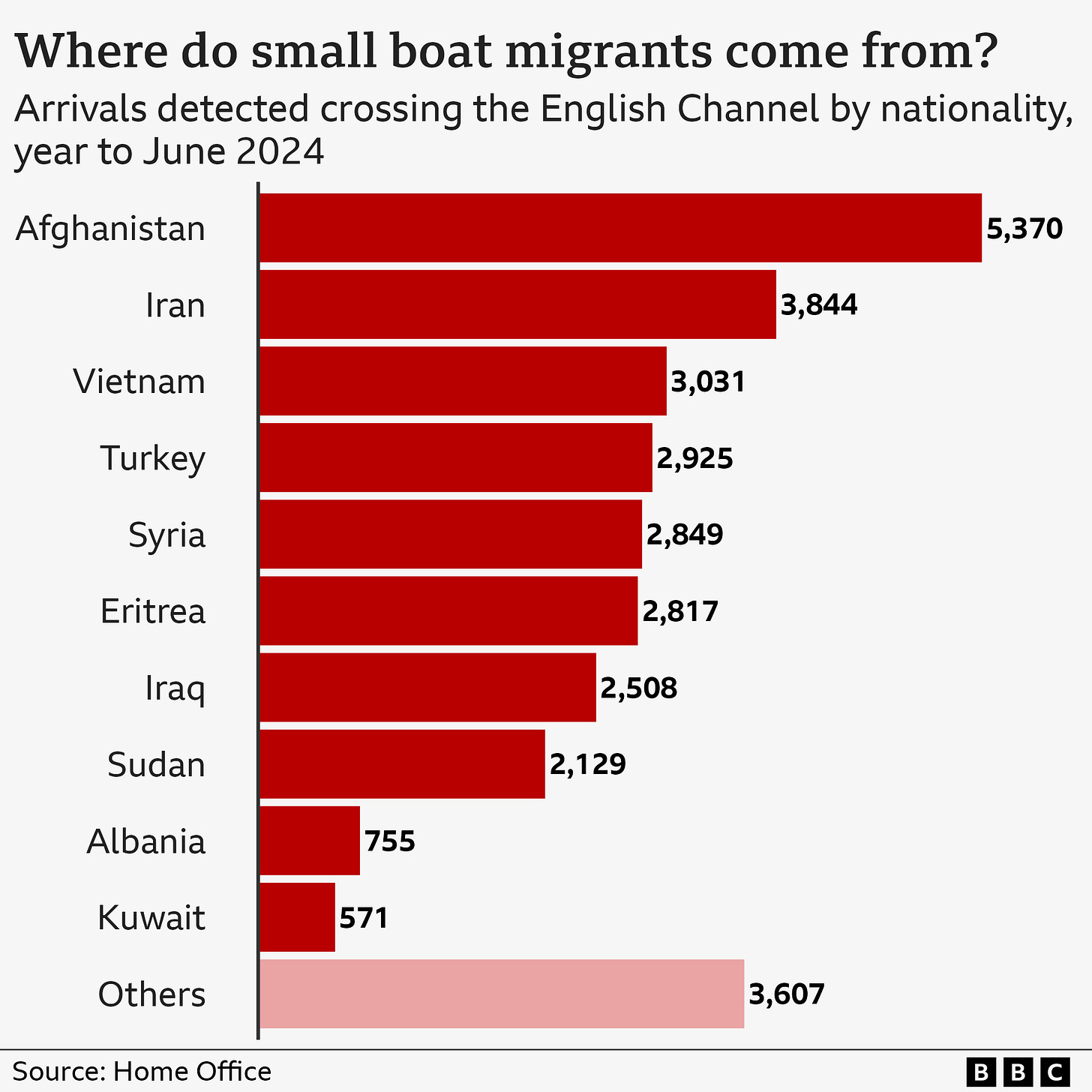




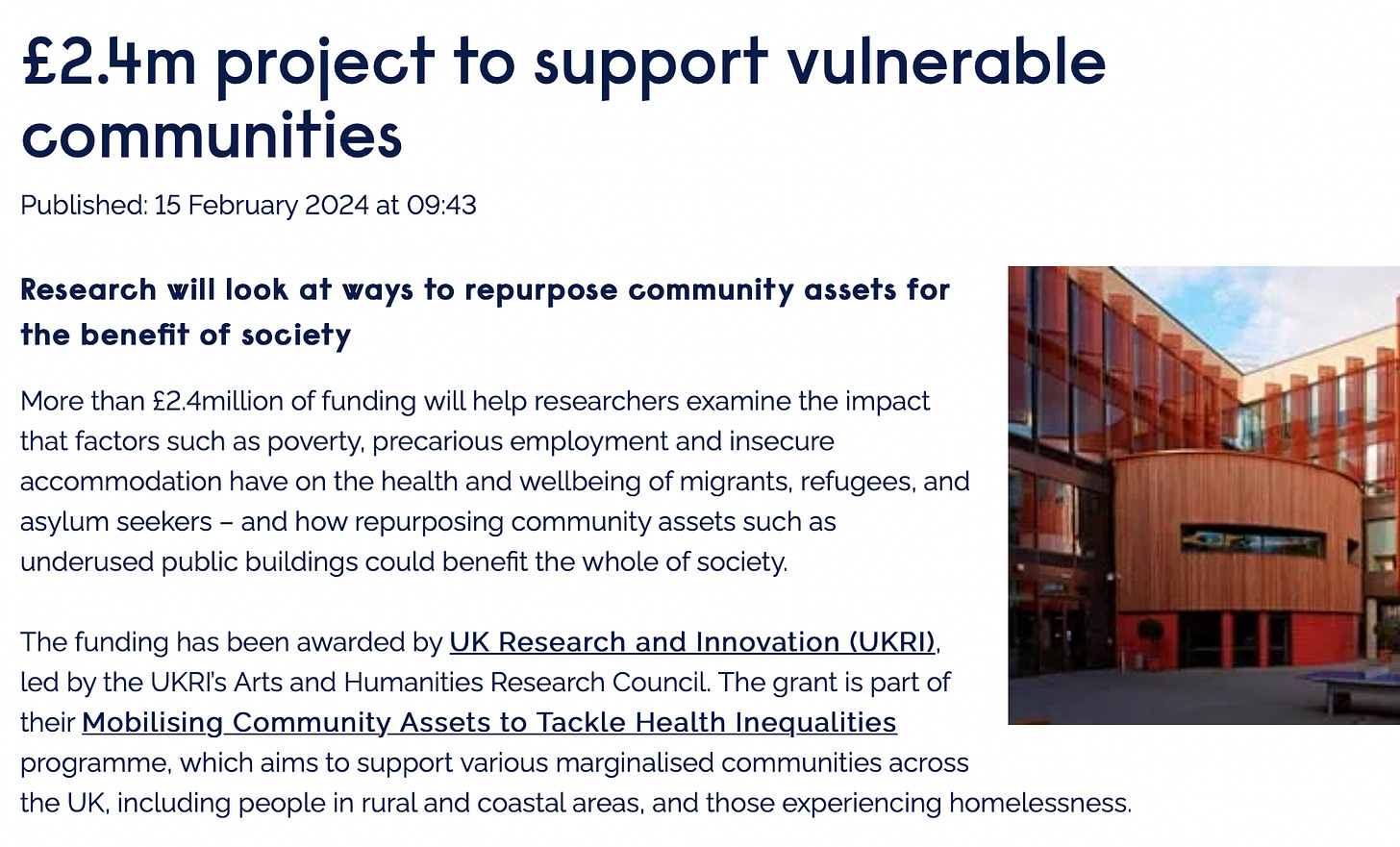
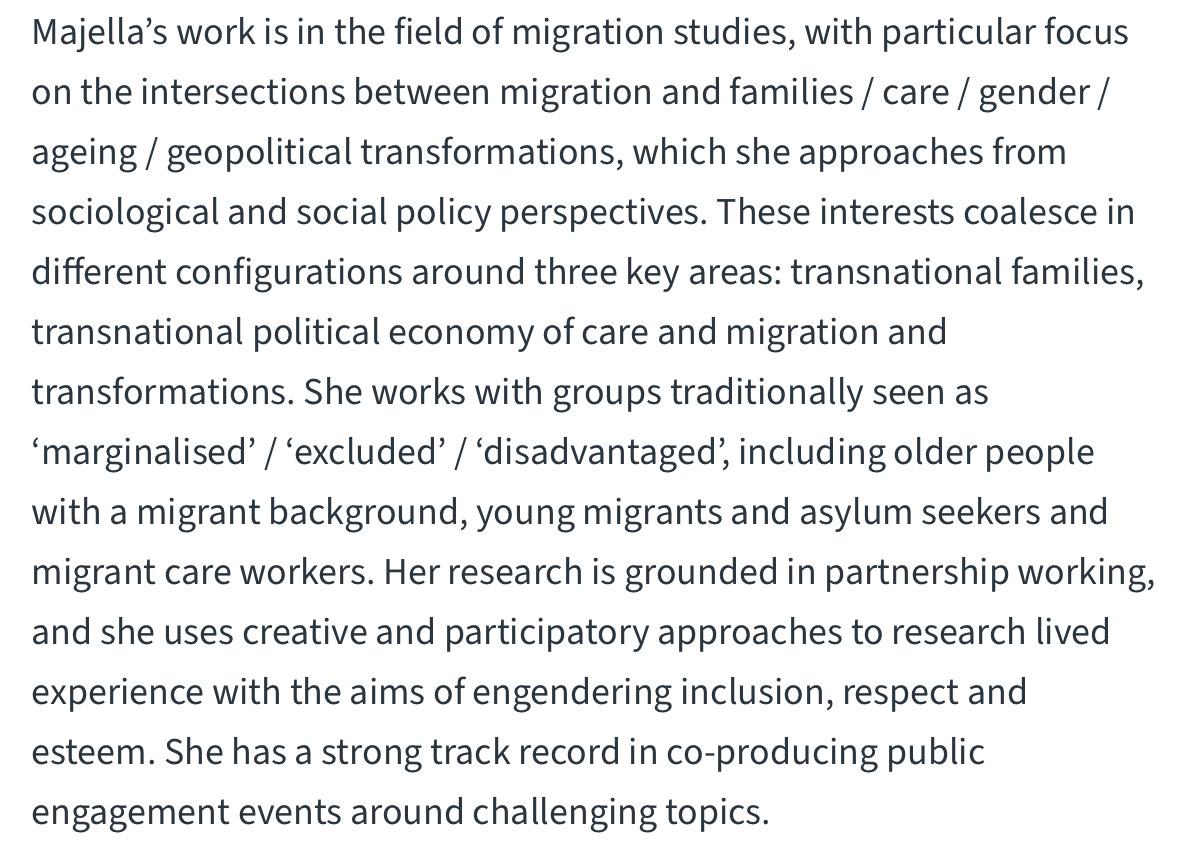


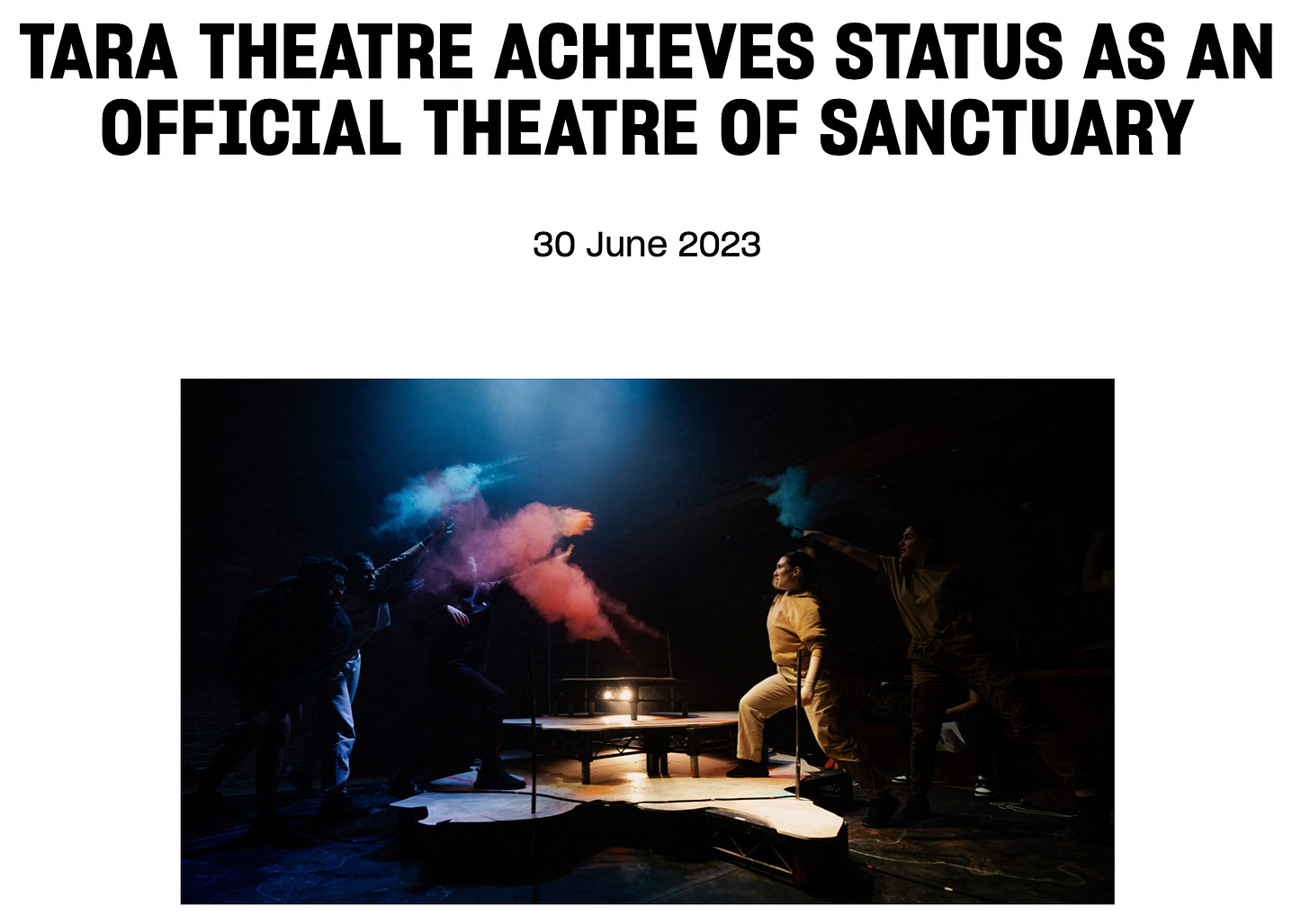


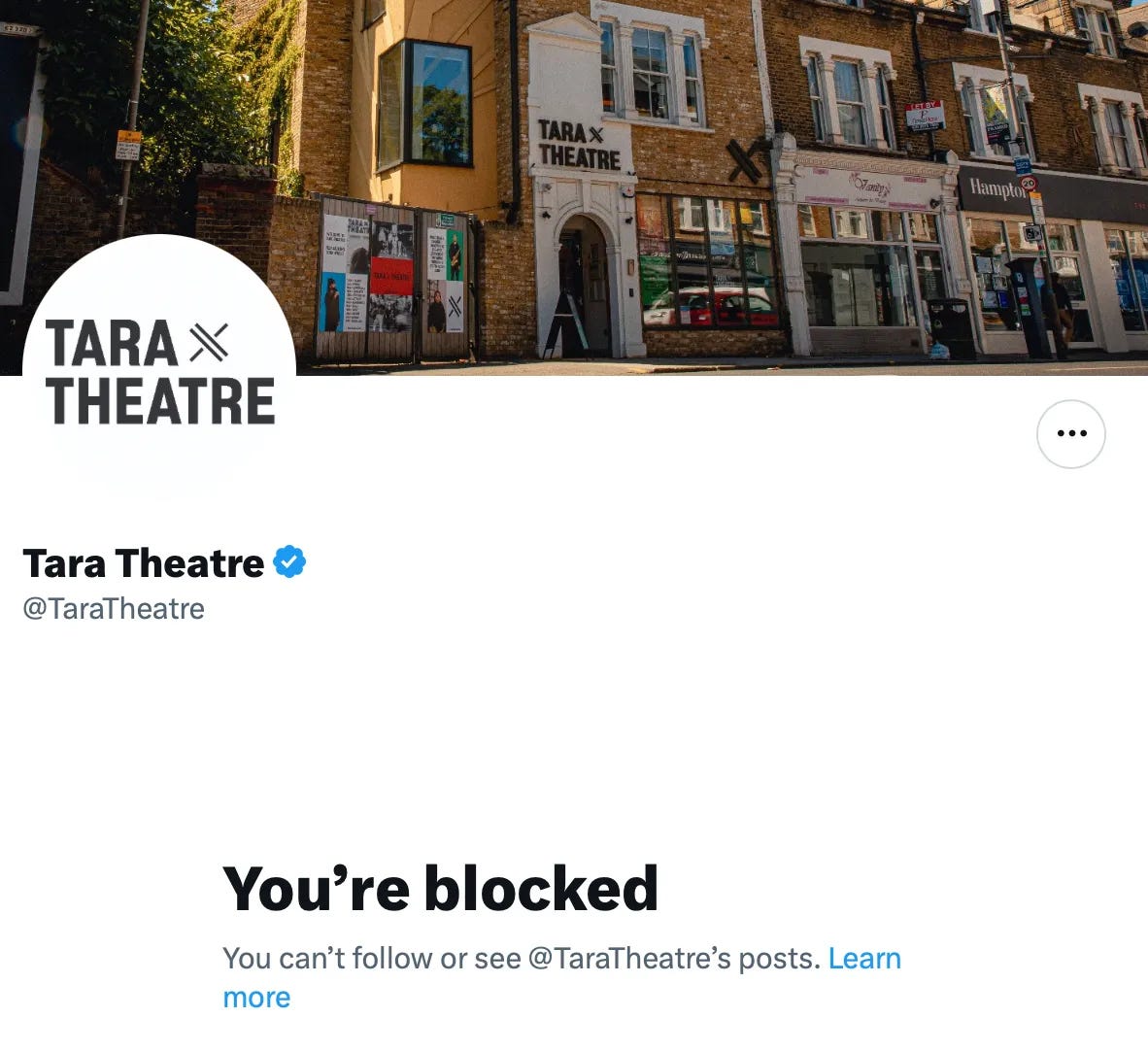

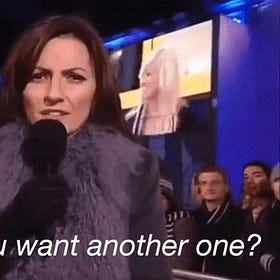

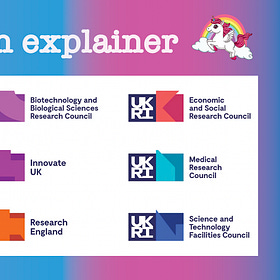
“As with most of Woke Waste, I’ll bet most taxpayers have never heard of the projects I’ve mentioned.” And, more seriously, there will scarcely be any, if even one, MP or peer who has any knowledge of the frittering away of taxpayer money on these shocking activities.
It is, I’m afraid, one more consequence of the outsourcing of so much political decision making (and the decision to grant money for all these projects is clearly political) to quangos. Some politicians may have an inkling of the amount of money granted to the Arts Council, which they generally approve of (although many taxpayers don’t), but have zero knowledge of how that cascades down through other bodies into the hands of the chancers and pseudo academic grifters you describe.
There is no effective (any?) accountability for this misuse of public funds and there never will be under the model we have adopted. At least you are doing what diligent politicians should be doing in shining a torch on this scandal. I hope some MPs read your work.
Great work but it’s so frustrating that we’re wasting so much money on rubbish.